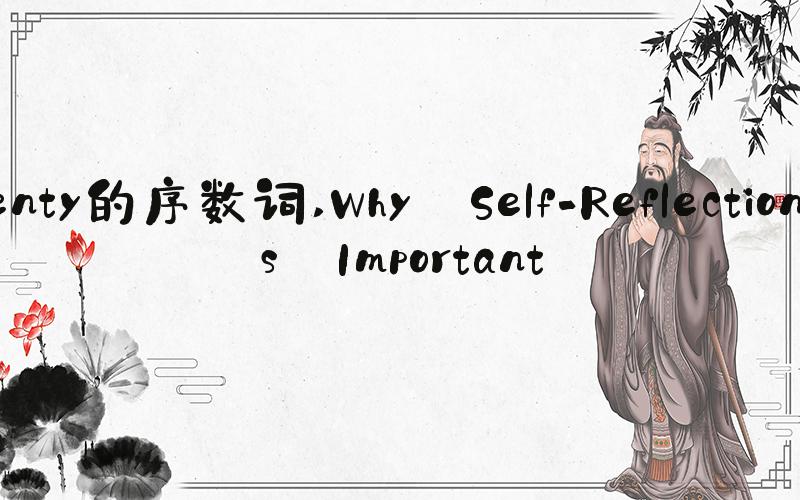
Twenty-first: The Importance of Self-Reflection
Self-reflection is a powerful tool for personal growth and development. During this process, we take time to examine our thoughts, feelings, and behaviors in order to better understand ourselves and make positive changes in our lives. In today's fast-paced world, however, it can be difficult to find the time and space for self-reflection. In this article, we will explore why self-reflection is so important, how to make time for it in our busy lives, and some tips for effective self-reflection.
Why Self-Reflection is Important
Self-reflection allows us to gain valuable insights into our thoughts, feelings, and behaviors. By analyzing our past experiences and choices, we can identify patterns of behavior that may be holding us back and make the necessary changes to improve our lives. Self-reflection also allows us to gain a better understanding of our values, goals, and beliefs, which can help us make more informed decisions about our lives.
Furthermore, self-reflection helps us to develop greater self-awareness. When we are aware of our thoughts and emotions, we can more easily recognize unhelpful patterns and make changes to our behavior. This can lead to greater mental and emotional resilience, as well as improved personal and professional relationships.
Making Time for Self-Reflection
While self-reflection may seem like a luxury that we can't afford in our busy lives, it is actually essential for our wellbeing and personal growth. There are many ways to make time for self-reflection, even if we only have a few minutes each day:
Set aside a specific time each day for self-reflection, even if it's just a few minutes before bed.
Take a walk or engage in another calming activity that allows you to reflect on your thoughts and feelings.
Start a journal or meditation practice to help you focus your reflections.
Switch off your phone and other distractions to help you focus fully on the task at hand.
Tips for Effective Self-Reflection
Effective self-reflection requires a few key skills and techniques. Here are some tips to help you get the most out of your self-reflection practice:
Be honest with yourself - this is the only way to gain true insights into your thoughts, feelings, and behaviors.
Avoid judgment - instead of beating yourself up over your mistakes, take a curious, non-judgmental approach to your reflections.
Focus on your emotions - emotions are powerful indicators of our inner states, and can provide valuable insights into our thoughts and behavior.
Look for patterns - by examining patterns in your thoughts, behaviors, and emotions, you can gain deeper insights into what makes you tick.
Set goals - once you've identified areas for improvement, set specific, achievable goals to help you make positive changes in your life.
Conclusion
Self-reflection is a powerful tool for personal growth and development. It allows us to gain valuable insights into our thoughts, feelings, and behaviors, and can help us make positive changes in our lives. By making time for self-reflection and using some of the tips outlined in this article, you can develop greater self-awareness and resilience, improve your personal and professional relationships, and create a more fulfilling life for yourself.

